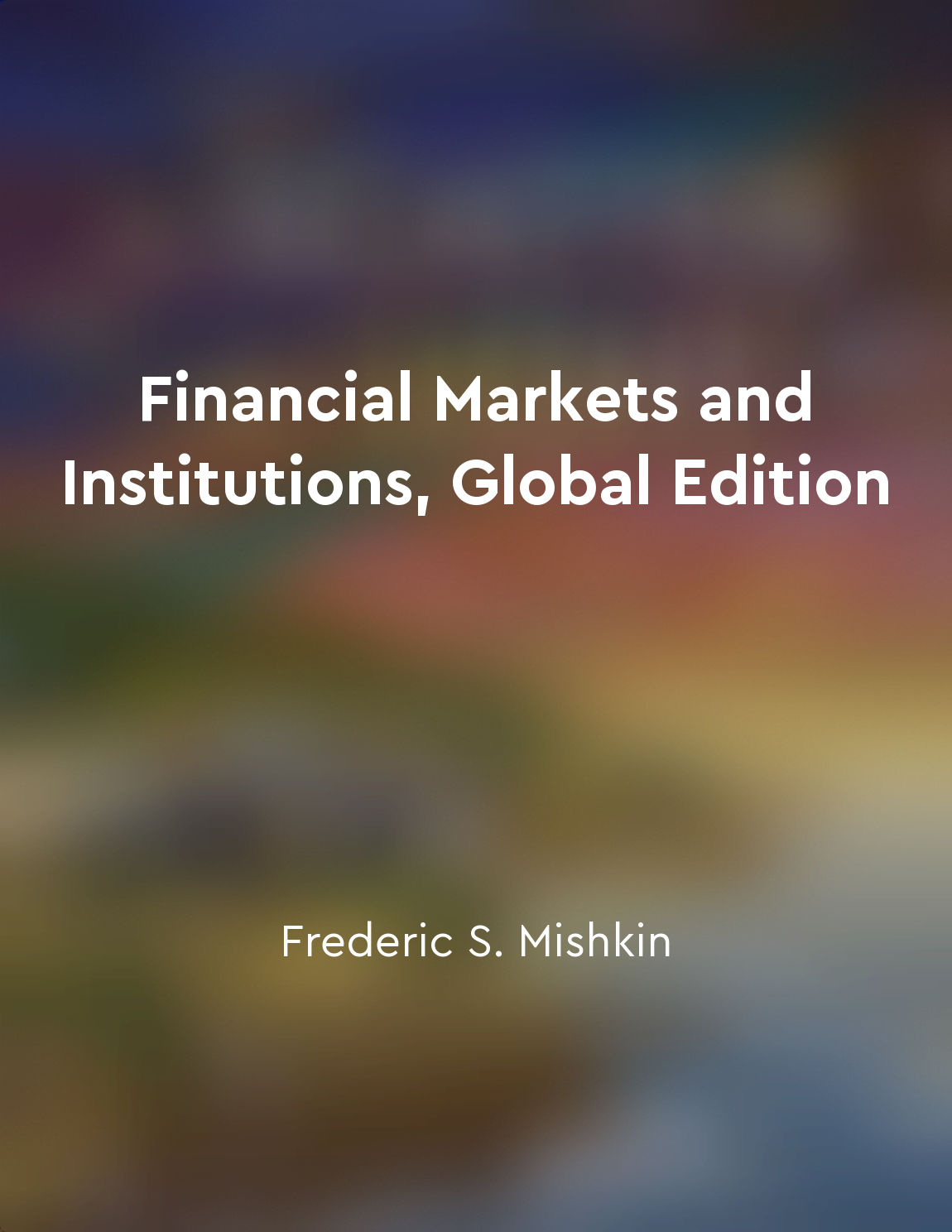Globalization has interconnected markets across borders from "summary" of Financial Markets and Institutions, Global Edition by Frederic S. Mishkin,Stanley G. Eakins
Globalization has profoundly transformed the nature of financial markets, creating a highly interconnected global financial system. This interconnectedness has been facilitated by advancements in technology, communication, and transportation, which have significantly reduced barriers to the flow of capital across borders. As a result, capital can now move more freely and quickly between countries, leading to increased integration of financial markets worldwide. The interconnectedness of global markets has important implications for investors, corporations, and governments. Investors can now easily diversify their portfolios by investing in a wide range of financial instruments from different countries. This diversification helps reduce risk and enhance returns by spreading investments across different markets. Similarly, corporations can access a larger pool of capital from investors around the world, enabling them to fund projects and expand their businesses more efficiently. Moreover, globalization has increased competition among financial institutions, leading to greater efficiency and innovation in the financial sector. Financial institutions must now adapt to changing market conditions and regulations in multiple countries, requiring them to be more nimble and responsive to global trends. This competitive environment has also led to the development of new financial products and services that cater to the diverse needs of global investors and corporations. Despite the many benefits of interconnected markets, globalization has also brought about challenges and risks. The interconnectedness of financial markets means that economic shocks in one country can quickly spread to other countries, leading to contagion and systemic risks. For example, the global financial crisis of 2008 originated in the United States but quickly spread to other countries, causing a severe recession worldwide.- Globalization has fundamentally transformed financial markets by creating a highly interconnected global financial system. This interconnectedness has enabled capital to flow more freely between countries, leading to increased integration of financial markets worldwide. While this interconnectedness has brought many benefits, it has also introduced new challenges and risks that must be carefully managed by investors, corporations, and governments.
Similar Posts

World Wars reshaped global alliances and power dynamics
The cataclysm of the two World Wars transformed the world in ways that were unimaginable before. These conflicts not only redef...
Competition encourages businesses to improve products and keep prices low
Competition in the business world serves as a driving force for companies to constantly strive for improvement. When businesses...
External shocks can impact growth trajectories
External shocks, such as sudden changes in technology, government policies, or global economic conditions, have the potential t...
Sovereign debt crises can disrupt currency markets
A sovereign debt crisis occurs when a government is unable to make payments on its outstanding debt. This can have severe reper...
Prices fluctuate based on market conditions
In economics, prices are not fixed entities but rather dynamic variables that respond to changes in market conditions. This mea...

Budgeting is crucial
Budgeting is a fundamental aspect of personal finance that cannot be overlooked. It is the process of creating a plan for how y...

Emerging markets offer growth opportunities but also pose risks
Emerging markets are often seen as promising environments for businesses looking to expand their operations. These markets typi...
International money and finance are interconnected
International money and finance are deeply intertwined in today's global economy. The movement of funds across borders has beco...

Digital networks revolutionize communication
Digital networks are reshaping the way we communicate with one another on a global scale. The internet has transformed the worl...


